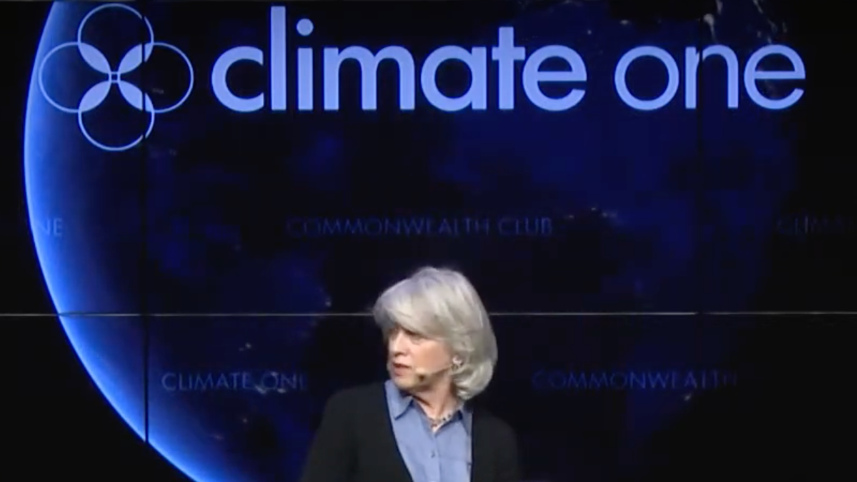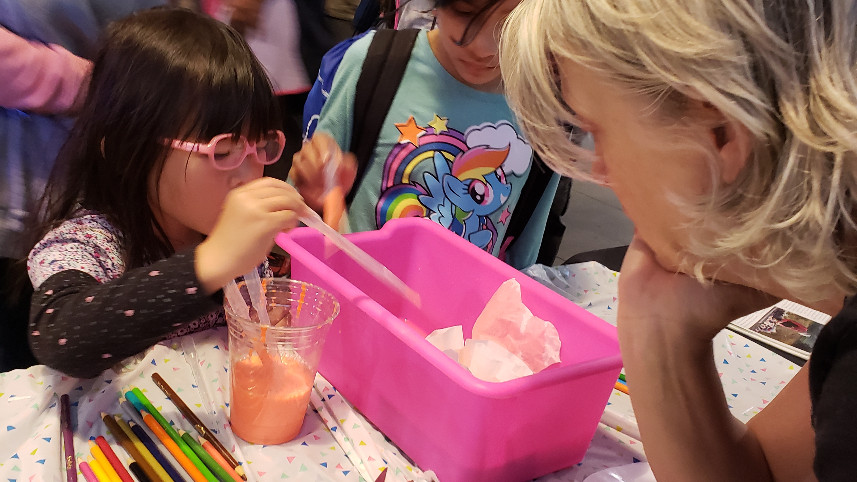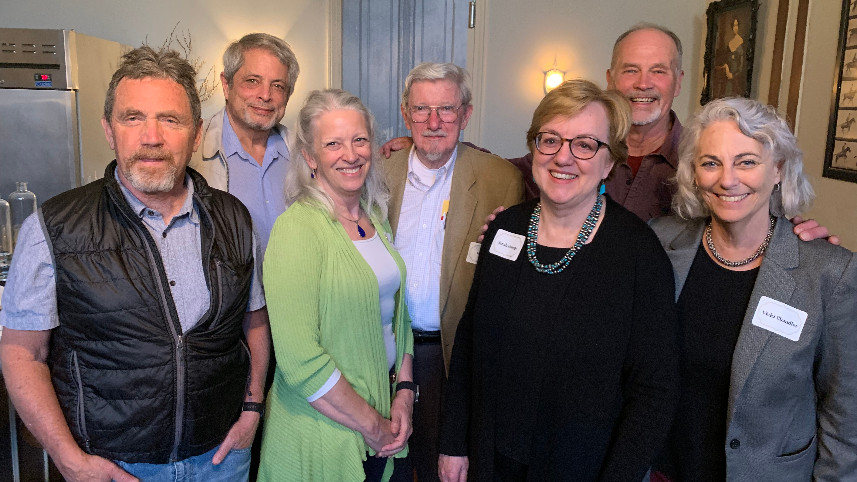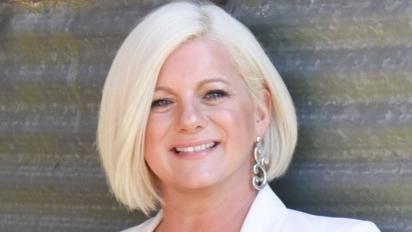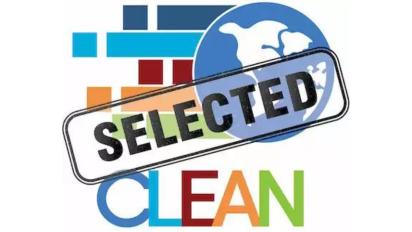A Brief and Far from Comprehensive History of the Last 10 Years at NCSE

When I arrived at NCSE in early 2014, the board, staff, and founding executive director, Genie Scott, all recognized that the landscape was changing. After stupendous legal victories, culminating in the resounding pro-science decision in Kitzmiller v. Dover in 2005, the fever over challenging evolution in schools seemed to be breaking as it was becoming clear that teaching creationism or any of its variants in public schools would not survive court challenges. Soon after, the Next Generation Science Standards, which included a thorough treatment of evolution, were moving towards adoption in state after state. Perhaps the nation was on the right track on that score.
Meanwhile, in 2012, NCSE had added climate change to its mission, having seen the topic suffer the same kinds of indirect attacks in state legislation (of the “teach both sides” or “teach critical thinking” variety) that had previously targeted evolution. But head-on challenges in classrooms or districts to climate change education were rare and, in any event, it was clear that if the challenges were to become more direct. we would need a new strategy — an argument based on the separation of church and state would not apply.
All this is to say that NCSE was in the midst of some soul-searching when I arrived. How, exactly, might NCSE expand beyond its hugely successful strategy of reacting when threats to science education arose? The organization’s go-to metaphor was that it was the nation’s firehouse — ready to spring into action whenever efforts to interfere with science education flared up. But what should the new metaphor be? Clearing the brush so that fewer fires started? Fire-proofing communities? Equipping teachers and parents with extinguishers?
It turns out that what was needed was not a new metaphor, but a new collection of metaphors. NCSE remains the nation’s science education firehouse, always on the lookout for efforts to interfere with science education and consistently successful at blocking them. We have also evolved into one of the few organizations, perhaps the only organization, that deeply explores what is actually going on in classrooms when it comes to the teaching of evolution and climate change. And we have devoted immense effort into figuring out how to support teachers who, for any number of reasons, are not providing their students with the evolution and climate change education they deserve.
There are a lot of stories I could tell and so many people to thank for the great work they did at NCSE over the last 10 years (they’re all listed below), but I’m going to focus on just one major storyline: NCSE’s increased focus on helping teachers do a better job teaching evolution and climate change.
It should go without saying that I cannot claim sole credit for NCSE’s successes; our progress is due to a wonderful group of dedicated, smart, and generous-spirited colleagues, beginning with Genie Scott who welcomed, mentored, and encouraged me.
And of course, a loyal and deeply engaged board has inspired and supported me all along the way.
But here’s the heart of the matter: there follows a list of NCSE’s employees during my time as Executive Director. I want to give a heartfelt thanks to each and every one because without them, the organization would not have been able to do the important work of defending and supporting accurate science education (and would not have been such a great place to work!).
- Claire Adrian-Tucci
- David C. Almandsmith
- Lin Andrews
- Minda R. Berbeco
- Glenn Branch
- Astrid Broertjes
- Kate Carter
- Ashley Collins
- Emma Doctors
- Stuart Fogg
- Heather Grimes
- Charles Hargrove
- Cari Herndon
- Peter Hess
- Brad Hoge
- Nina L. Hollenberg
- Rae Holzman
- Deb Janes
- Wendy Johnson
- Stephanie Keep
- Robert Luhn
- Mark McCaffrey
- Eric Meikle
- Nia Mitchell
- Steve Newton
- Paul Oh
- Josh Rosenau
- Emily Schoerning
- Blake Touchet
The first step in this process was the deployment in 2014– 2015 of the first-ever nationally representative survey of climate change teaching practices. The survey results revealed that lots of middle and high school science teachers were covering climate change, but many of them — about half — were sending their students “mixed messages” about the degree of acceptance of anthropogenic climate change among scientists. Indeed, a shocking four in 10 teachers correctly chose the response that more than 80–100% of scientists accept anthropogenic climate change, a clear sign that the fossil fuel industry’s efforts to sow doubt about the scientific consensus had been quite successful. Given that most teachers reported having very little formal exposure to climate science during college or in subsequent professional development, their vulnerability to propaganda was understandable, but troubling.
The survey’s snapshot of climate change teaching practices was strikingly similar to those of an earlier survey of evolution teaching practices that showed that only about one-third of high school biology teachers were covering evolution consistently with the current scientific understanding while about half were avoiding, equivocating, or otherwise depriving their students of a straightforward education about evolution.
In both cases, only a small minority of teachers reported actively misleading their students about the reality of climate change or evolution, and most of these would never register as a blip on NCSE’s radar. But the recognition that so many teachers were covering these topics poorly or not at all was pivotal for NCSE and has informed our approach to our mission for the last 10 years. Perhaps, we realized, we need to be concerned not only with active interference but also with misleading approaches to these topics (intentional or not).
How might we reach these teachers? This turns out to be a remarkably difficult challenge. The decentralization of the U.S. educational system makes it practically impossible to mandate uniform treatment of any subject. The federal government has minimal authority to impose requirements on local school systems. Each state sets its own science standards and teacher licensing requirements. Decisions about textbooks, curriculum, and professional development opportunities are often left to individual districts, individual schools, and even individual teachers.
To be sure, that is not entirely a bad thing. I think we’d all agree that we would not want each new federal administration to be able to suddenly upend how science,or anything else, is taught at every school in the country. But for NCSE, decentralization meant that we had to find creative ways to reach the teachers we most wanted to help.
The first step was to start a newsletter, NCSETeach, and begin working to build awareness of NCSE among the teaching community. Within a year, the newsletter had accumulated 6,000 teacher subscribers. Next, we recruited about 30 experienced teachers, whom we dubbed Teacher Ambassadors, to help us develop sample activities and classroom best practices. Our long-term plan was for these teacher leaders to bring NCSE’s resources to their local communities through professional development, as we suspected that successfully changing teaching practices would require personal contact. For topics as socially contentious as evolution and climate change, trusting the messenger would be essential.
As we worked with these teachers, a coherent philosophy began to emerge, centered on three interlocking concepts: direct engagement with scientific evidence; resolution of common misconceptions; and implementation of a no-conflict approach.
A key realization was that many students do not enter the classroom as blank slates when it comes to the topics of evolution and climate change. Well, to be fair, students never walk into the science classroom as blank slates — they have been imbued by nature and nurture with plenty of ideas, right or wrong, about how things work. But climate change and evolution are special in that many of the ideas that students have about them come from how these topics are talked about in their communities or presented in the media. Unlike their ideas about the periodic table or photosynthesis, students’ misconceptions about evolution and climate change may have been instilled as part of their very identities.
And that is why, as we honed our approach to helping teachers cover these topics effectively, we decided that we should choose the most common and stubborn misconceptions that students might have about evolution and climate change, develop activities that directly address those misconceptions, and base those activities on authentic scientific evidence that students could engage with directly. In so doing, the students’ misconceptions would be resolved organically. The teacher would act as a guide, modeling scientific thinking and processes, rather than as a judge, directly confronting and correcting students’ initial beliefs.
These concepts have guided our work for the last several years. When the pandemic delayed our initial outreach in the summer of 2020, we used the next two years to deepen our resources, building comprehensive lesson sets that systematically address misconceptions, incorporate pedagogical best practices, and work seamlessly with the Next Generation Science Standards.
The pandemic also stimulated a further expansion of our mission. NCSE has always recognized that many misconceptions about evolution and climate change are grounded in a fundamental misunderstanding of how science works. We knew that many teachers who cover evolution and climate change successfully in places where misconceptions are rife swear by beginning the school year with a deep dive into the nature of science — a scaffold that they work from when they begin to discuss evolution and climate change.
Understanding how science works is essential to navigating our complex world. But the pandemic shone a bright light on the degree to which most American adults, much less students, were simply not equipped to handle the flood of COVID-19 news, from the origin of the virus, to mortality rates, to the efficacy of masks and vaccines, to risk assessment. Many — perhaps most — people felt unable to evaluate all this information for themselves. And that, of course, left many people at the mercy of authority figures they thought they could trust, but who often were misinformed, or worse, deliberately spreading misinformation.
And so, during the pandemic, we put our downtime to good use: developing a third set of lessons on the nature of science, and writing a near-weekly “Coronavirus Teachable Moment” column to help teachers answer the questions about the pandemic their students were bringing to the classroom.
When the pandemic receded, we hit the ground running. We expanded our teacher team, and began working with our Teacher Ambassadors to prepare them to introduce our new lesson sets in their local communities.
And that’s where we are now: working hard to figure out how to reach as many science teachers as possible with a comprehensive set of resources and approaches to measurably improve how evolution, climate change, and the nature of science are taught. Our Supporting Teachers program is now NCSE’s largest.
It couldn’t possibly be a better time for someone like Amanda L. Townley to take over the leadership of NCSE. Expert in effective teaching practices, deeply connected to the science teaching community, and gifted with rare cultural sensitivity through her upbringing in a conservative religious community, NCSE’s new executive director is uniquely qualified to take our teacher outreach efforts to new levels. I can’t wait to see what comes next.

